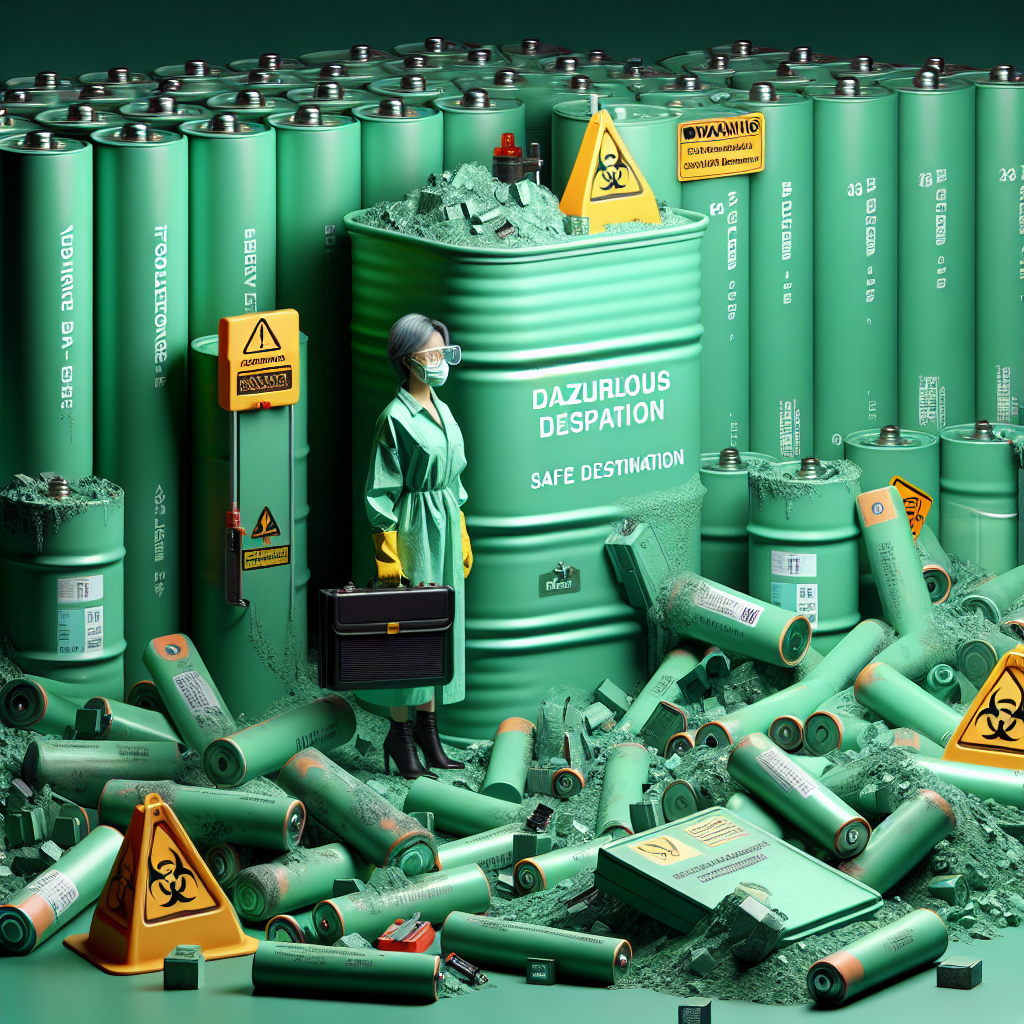Blog Ecobraz Eigre

Lithium Battery Disposal: Risks, Standards and Safe Disposal
Risks of Disposing of Lithium Batteries
Lithium batteries, due to their chemical composition and high reactivity, pose significant risks to the environment and public health when disposed of improperly. Among the main dangers are fires, explosions and contamination of soil and water by heavy metals and toxic substances. Incorrect handling can lead to leaks of flammable electrolytes and cause irreversible damage to ecosystems.
Applicable Regulations and Legislation
The disposal of lithium batteries is regulated by Law No. 12.305/2010, which establishes the National Solid Waste Policy (PNRS), especially in its articles dealing with the management of hazardous waste. According to the National Solid Waste Management Information System (SINIR), lithium batteries are classified as hazardous waste and must be treated and disposed of differently to avoid environmental damage.
Furthermore, the CETESB defines specific procedures for storage, collection and transport, with technical requirements that guarantee safe operations.
Safe Disposal and Specialized Collection
The recommended final destination for lithium batteries involves processes for reusing the materials and chemical recycling to minimize environmental impacts. Disposal in common systems can compromise the recovery of metals and cause serious accidents during waste management.
In order to comply with current regulations, it is essential to use specialized electronic waste collection services, which offer safe collection, transport and recycling in accordance with legal requirements. These services guarantee the correct disposal to authorized units, contributing to environmental preservation and legal compliance.
Technical Care for Handling
When handling lithium batteries, strict technical procedures must be observed to avoid short circuits and damage that could lead to accidents. Personal protective equipment (PPE) is indispensable for those working in collection or recycling. It is recommended that devices containing batteries be discharged and stored in a dry, ventilated and impact-protected place.
Related Information Security Aspects
For devices containing lithium batteries integrated into storage units, such as hard disks, it is necessary to carry out safe media sanitization before disposal. This practice prevents the leakage of sensitive information and ensures compliance with data protection standards.
Conclusion
The safe disposal of lithium batteries is a critical challenge that requires compliance with specific legislation and the adoption of appropriate technical practices. Responsible management avoids environmental risks, fires and contamination, as well as promoting sustainability through the reuse and recycling of materials. The use of specialized collection and disposal services makes a decisive contribution to meeting Brazilian standards and protecting the environment.

Deixe um comentário
O seu endereço de e-mail não será publicado. Campos obrigatórios são marcados com *